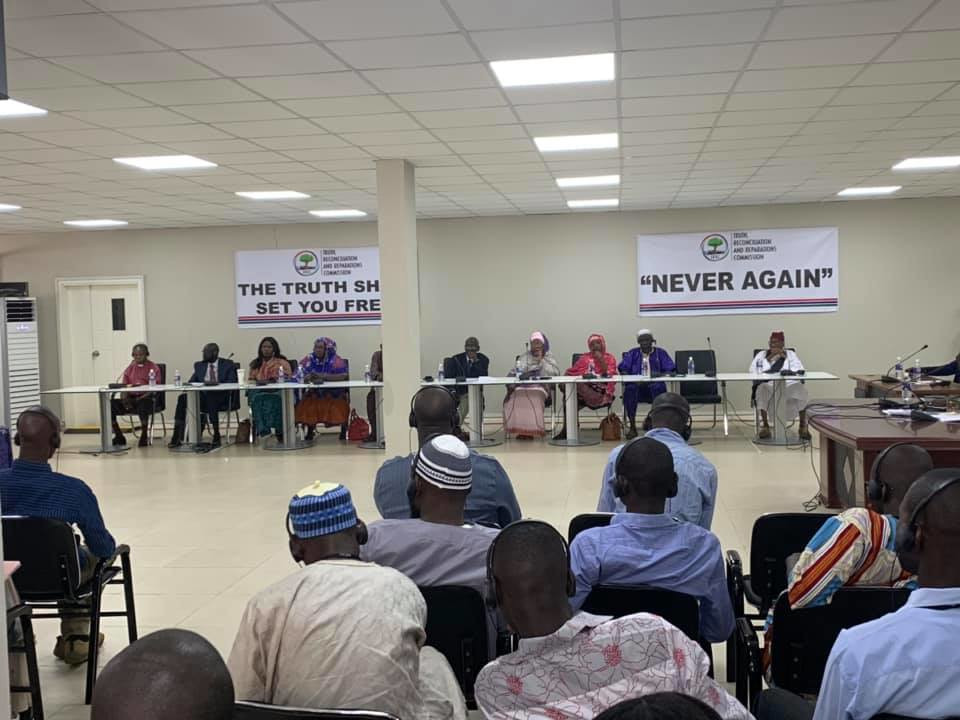
Long Read
The Gambia desperately needs a responsive, responsible, and courageous leader in building as a matter of fact a political consensus with regards to the implementation of the Truth, Reconciliation and Reparation Commission (TRRC) report.
An appeal to leadership and political will that is left to the unfettered discretion of President Adama Barrow in practical terms of implementing the Truth, Reconciliation and Reparation Commission (TRRC) report pertaining to granting amnesty or prosecuting the people adversely mentioned in the report and recommendation of the commission.
It will be “in the best interest of the Gambia” as a cornerstone of healing a divided country in delivering justice, reconciliation, peace and unity, and to help heal the political, ethnic and religious divide.
Today, the Gambia is dealing with the Truth, Reconciliation and Reparation Commission’s (TRRC) final report and recommendations.
Still, over time the setup and process of the truth commission made Gambians see it as being for “restorative justice over retribution justice” after former President Yahya Jammeh’s twenty-two years of tyranny.
We continue to believe that using the TRRC as the mechanism for redress fell into the trap of focussing on individual stories (which were important but were never going to give us the whole picture) at the expense of addressing broader structural concerns (which is why it was easier to interrogate selective witnesses both perpetrators, survivors of the horrors of Yahya Jammeh’s malevolence rule and torture victims who remain relatively anonymous).
Moreover, we wish the collective view that forgiveness and accountability could go hand in hand to be thoroughly tested. The TRRC might provide an easing valve for past hurts, which remains a powder keg.
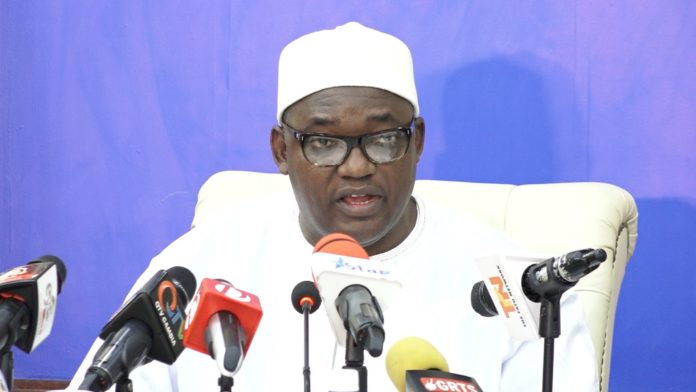
The unfinished business of peace and stability and divisive politics in the Gambia.
These situations require a visionary leader who can unite, heal, and inspire the Gambian people. The TRRC recommendation and government White Paper demand the president’s full attention.
The recommendations require the full attention of a real leader who is sober about the threat within our borders, which is toxic divisive politics and ethnic bigotry.
However, President Adama Barrow must have the capacity and the desire to rise to the occasion—his ability to empathise with those hurt. The truth is that you can still be a “tough leader” and a compassionate guy at the same time.
Being confrontational and combative all the time are not the traits of a real leader. Real leaders know how to walk that sensitive line. They do it all the time.
The right path to peace, reconciliation, security, ethnic, religious, and political unity must be shepherded around leaders and real leaders with the ability to empathize and sympathise with those who find themselves in difficult situations.
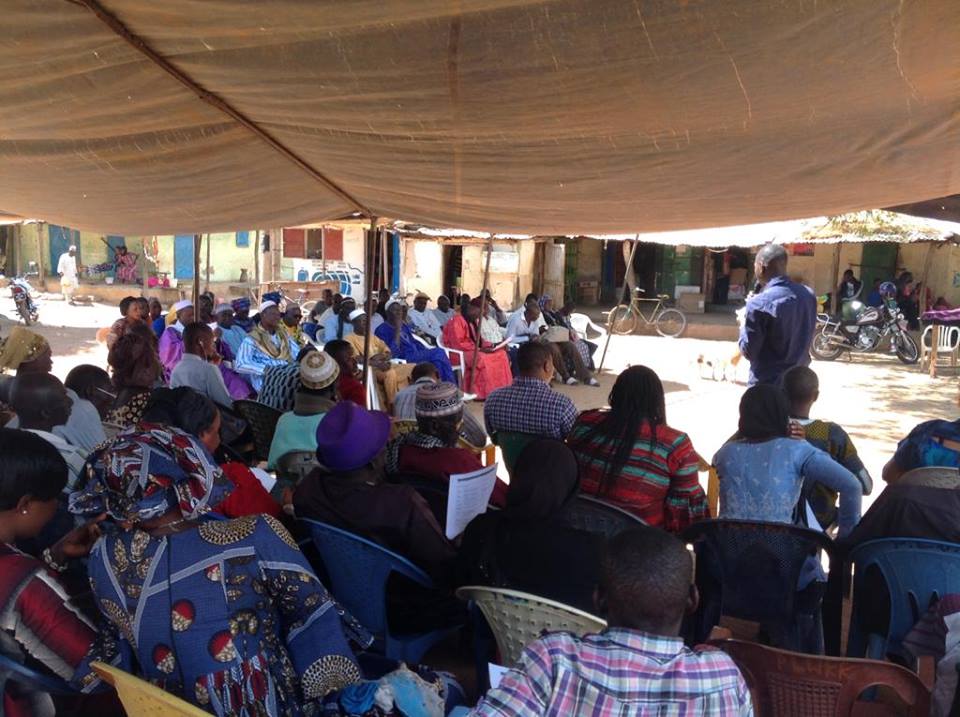
The president of the Gambia is supposed to be the person the Gambian look to for strength and consolation when Gambians did not deserve to suffer from the hate and rule of a madman for twenty-two years.
However, there are times in the history of the nation that needs a leader to show that the Gambia is one nation and not a divided country when tragedy has befallen on them, which unfortunately, is too often, a government demands a leader who can tackle both vertical and horizontal discriminations, injustices and inequality in a nation.
The situations require a leader that inspires and heals a broken country, not further divide it, a real leader can show the Gambia is one nation and not to divide it.
However, let us understand that the horrors of Yahya Jammeh’s brutal dictatorship and human suffering continued decades after the Universal Declaration of Human Rights settlement, which provided equality of treatment for all human beings.
Therefore, President Adama Barrow and the Ministry of Justice, and other stakeholders involved in the TRRC report must take the high road not by their political offices or allow the process of justice and reconciliation and peace to be undermined by the ambivalent fifth- columnists.
By dint of President Barrow’s colossus of unimpeachable moral character and a testament to his political courage, political will, and his commitment to reflect by his living up to which he believed in resilience, accountability, reconciliation and justice that could make Barrow an iconic and unparalleled leader.
His grace in this aspect of his leadership established a truth, reconciliation, and reparation commission that will be President Barrow’s most incredible political legacy and unmatched among contemporary leaders.
If Rwanda could achieve peace and unity of its people (no tribalism but peace and progress in Rwanda today) after the 1994 Genocide, why not the Gambia?
Yes, we can do and show magnanimity for peace, justice, and reconciliation is a tremendous opportunity to accept the darkness of our collective history and heal without delay, with reconciliation and rebuilding our relationships as one Gambian, one people, and one nation.
“The time for the healing of the wounds has come. The moment to bridge the chasms that divide us has come. The time to build is upon us,” Nelson Mandela told South Africans at the end of apartheid. He described forgiveness as a powerful weapon because “it liberates the soul, it removes fear.”
It was to herald a whole new approach to dealing with the atrocities committed under apartheid: a model at complete odds with the prosecution and punishment exemplified at Nuremberg.
In place of trials, Nelson Mandela created a Truth and Reconciliation Commission, led by Archbishop Desmond Tutu: the idea was to bring out the truth of what happened by allowing victims and perpetrators to give testimony in public hearings.
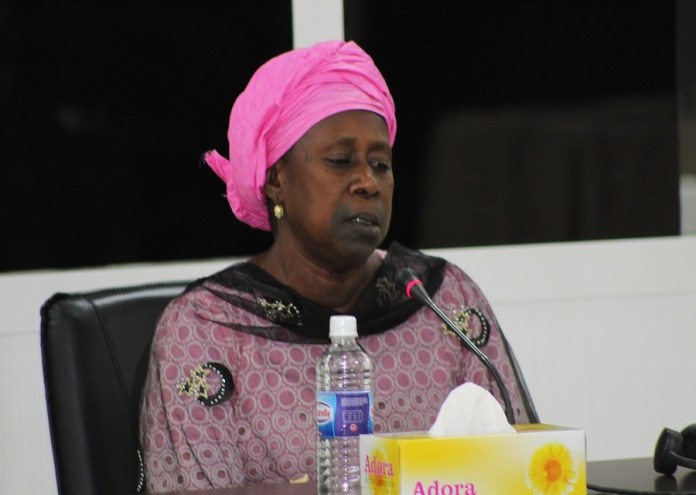
This, went the theory, would serve to investigate the full extent of the human rights abuses while providing an accurate record and analysis of those years.
Moreover, giving amnesty to the old oppressors – even killers replaced the whole idea of RETRIBUTIVE JUSTICE with one of RESTORATIVE JUSTICE.
This was not about righting past wrongs, but healing the wounds of history, as Nobel Laureate Desmond Tutu acknowledged. “We had a horrendous past,” he said. “We needed to look the beast in the eye so that the past would not hold us, hostage, anymore.”
Moreover, he said, “To forgive is not just to be altruistic; it is the best form of self-interest.”
As Archbishop Tutu pointed out: “RESTRIBITIVE leads to a cycle of reprisal, leading to counter-reprisal in an inexorable movement, as in Rwanda, Northern Ireland, and in the former Yugoslavia. The only thing that can break that cycle, making possible a new beginning, is FORGIVENESS.”
Moreover, if anyone were to lose sight of the higher goal, the guiding words of Nelson Mandela remain an inspiration. “Men of peace must not think about Retribution or recriminations. Courageous people do not fear forgiving for the sake of peace.
In January 2017, a historic change of government in The Gambia was ushered in through the ballot. For the first time in Gambian history, an opposition defeated an entrenched incumbent in a free and fair election.
It gave birth to The “New Gambia,” under the leadership of President Adama Barrow and his cocktail opposition coalition-led government toward progress and restoring democratic governance and respect for human rights and the rule of law in The Gambia.
Today, former President Yahya Jammeh is in exile in Equatorial Guinea, left behind a legacy of human rights violations, institutional dysfunction, and a looted national treasury in the Gambia.
Two decades of brutal repressive rule have shaped a legacy wherein executive power reached deeply into institutions, suppressed public expression, and embedded a culture of fear across public and private spaces.
As a result, a lack of trust and confidence defines the relationship between state and society, even as the three arms of government: legislative, executive, and judicial, have taken proactive steps to shape and advance reforms and follow the rule of law.
Truth, justice, peace, reconciliation, and unity? It boils down to the Truth, Reconciliation, and Reparation Commission (TRRC).
Since the beginning of the election of President Adama Barrow and the ending of twenty-two years of former President Yahya Jammeh’s rule in the Gambia, there has been widespread debate about how to bring justice, peace, and reconciliation and offer reparation to the victims of the horror of dictatorship.
Yahya Jammeh’s administration revealed that the government committed severe human rights violations. Many injustices and human atrocities have transpired since the Second Republic’s dark years.
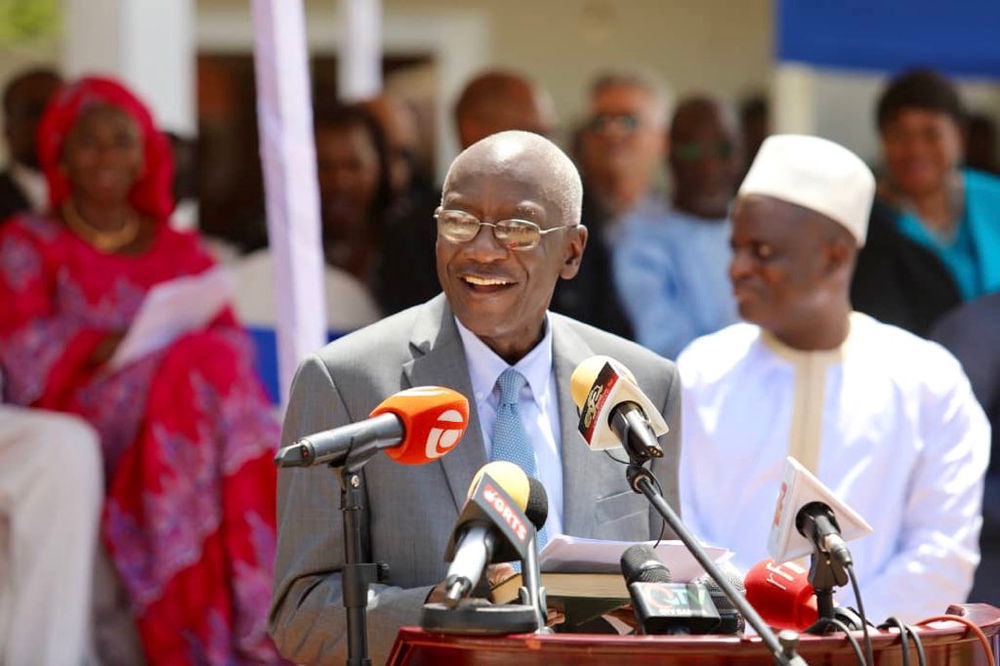
Now that a Third Republic and a democratic government is in place serving another five-year term mandate, with the panicky problem of how to extinguish the misdeeds and mistakes of the past human rights violations, has risen to the fore of President Adama Barrow and his government’s urgent reform and restructuring policy.
Talk of the administration possibly grant amnesty to the perpetrators of human rights in return for amnesty and forgiveness as long as the crimes were politically motivated, proportionate, and there was full disclosure by the person seeking amnesty.
With so many divergent voices lending themselves to the debate of whether the particular strategy developed along the lines of amnesty is appropriate, given the surrounding circumstance, anyone can guess which side of President Barrow’s pendulum.
Furthermore, his administration will ultimately be land on the matter.
There is no doubt the section of the perpetrators of human rights and other members of former Yahya Jammeh’s administration (the state-sponsored thugs known as the Junglers) that ignite this conundrum are a mob of ignorant, depraved, erroneous, wicked, and misguided zealots, who have committed the vilest, heinous, evil and immoral crimes against innocent people; women and children who have done absolutely nothing to them.
Furthermore, there has to be retributive justice over restorative justice to those Junglers under any structure or belief system.
Of course, in every country of the world, criminal prosecution of those accused of committing crimes is a fundamental aspect of a victim’s right to justice. However, the concept of remedial justice for victims often has to be balanced against the need to deal effectively and progressively with the atrocities and not provoke or maintain further violence.
In such circumstance, a restorative justice approach incorporating amnesty, focusing on the normative rather than the punitive objectives of criminal law, may be the more appropriate model.
Furthermore, that is how the issue of amnesty for the perpetrators of injustices and human rights abuses comes into the fray since the current situation we are in could be said to lend itself to such a circumstance.
From time immemorial, amnesty and forgiveness have been employed to promote settlement and advance reconciliation in societies that have emerged from brutal repression.
However, even though it is a tool that was historically often utilised in conflict resolution, it was never entirely viewed as the best option, only a necessary one.
When human atrocities are committed with such impunity, as is the case with these state-sponsored Junglers, and are merely dealt with by forgiveness and restorative justice, for the concept of human rights to have real legitimacy, they must connect up with retributive conceptions of justice.
Moreover, a carte-blanche amnesty for the perpetrators of crimes against humanity despite the atrocious mass murders and butchering they have subjected innocent Gambians to does not meet that standard.

Putting the issue of human rights aside, whether amnesty is the wisest course for the government to pursue with the perpetrators remains a matter of debate and perception.
Instead of examining the pros and cons of amnesty for the perpetrators and accomplices on a large scale; instead of making arguments about setting bad precedents, previous amnesty agreements have been granted both in the First and the Second Republic to renegade security officers.
And not to negotiate with ghosts, I opt to examine what the adoption or rejection of amnesty means. What it would genuinely represent to the Gambia.
Perhaps, suppose we remove all our emotional and sentimental blinkers and break down the implications of any amnesty deal to their very primary indices. In that case, we might have a different way of assessing the adoption or rejection of amnesty for the perpetrators represents.
Fundamentally, in its simplest form, the adoption of amnesty for the perpetrators and accomplices entails a choice between peace and justice!
Peace, justice, reconciliation, reparation, and unity, the five components and concepts; resolutions inspire and give way to each other.
Therefore, the five concepts would typically go together and complement each other. Ideally, any strategy adopted in this matter should incorporate both concepts.
However, when we are dealing with the granting amnesty, we are discussing at this immediate time within the backdrop of the atrocities that have been committed. Therefore, the amnesty may only offer the best prospect for peace not justice!
Within this impasse, unless the perpetrators and those accomplices surrender and offer themselves up for trial and prosecution today, the five concepts certainly cannot be applied in a manner where they co-exist. Alternatively, at least, this is highly unlikely.
There is just no getting away from it, and both Gambians and the government must fully appreciate this reality. Peace versus justice must be brought to a direct point when we talk about amnesty for the perpetrators and to all adversely mentioned in the TRRC report.
Furthermore, if there is a dichotomy between peace and justice, as suggested in this case, and a single choice has to be made, what ought we, Gambians, prefer?
I have my personal views on the issue and find that it is a battle of conscience, not just for peace against justice but also for the past against the present.
That is how it boils down in my mind. “I will explain;” the past because for the victims and for the crimes that have already been committed, justice should be served with forgiveness and reparation comes. Because the innocent people within the storm’s eye deserve some reprieve, the present deserves peace.
Nevertheless, the third facet of this reasoning, the most important one, is in the future. Given a superior choice between the concept of peace and justice, which option can change the status quo and provide the most stable and secure future for Gambians?
History shows that in countries that have come out of oppressive regimes and trials where crimes against humanity were committed, the peace deals that sacrifice justice often fail to give way to the expected peace in the long run.
Whereas justice initiates a fundamental change in society that adjusts the situations that allowed for the conflict, peace deals arguably only restore communities to a state of non-war, principally one that allowed for the crisis in the first place.
One would be hard-pressed to find a case where a system that selects justice ever leads to a return to that conflict. Therefore based on this argument, peace should never be favored over justice, only to allow it to inspire justice.
On the other hand, while international and national criminal trials promote justice, the quest for justice can be a long winding road and exacerbate divisions. It may even hinder the achievement of peace.
Usually, those who face the potential for prosecution may be reluctant to bury the hatchet and lay down arms, giving way for the violence to continue. Instead, amnesties for perpetrators are often thought to promote peace and reconciliation.
However, it is sought at the expense of retributive justice. Amnesties can also provide the calm environment necessary for reflection and dialogue to end the conflict.
Upon pondering their decision on whether to give amnesty to the perpetrators, the government needs to gauge the population’s views most affected by the violence rather than instigating plans based on the opinions of politicians and dogmatists.
Perhaps, the communities, families, businesses, and various ethnicities residing in the red zones, those targeted, hounded, and slaughtered, should have the ‘first refusal’ to input into the government’s decision about amnesty. It is their views that should count first and foremost.
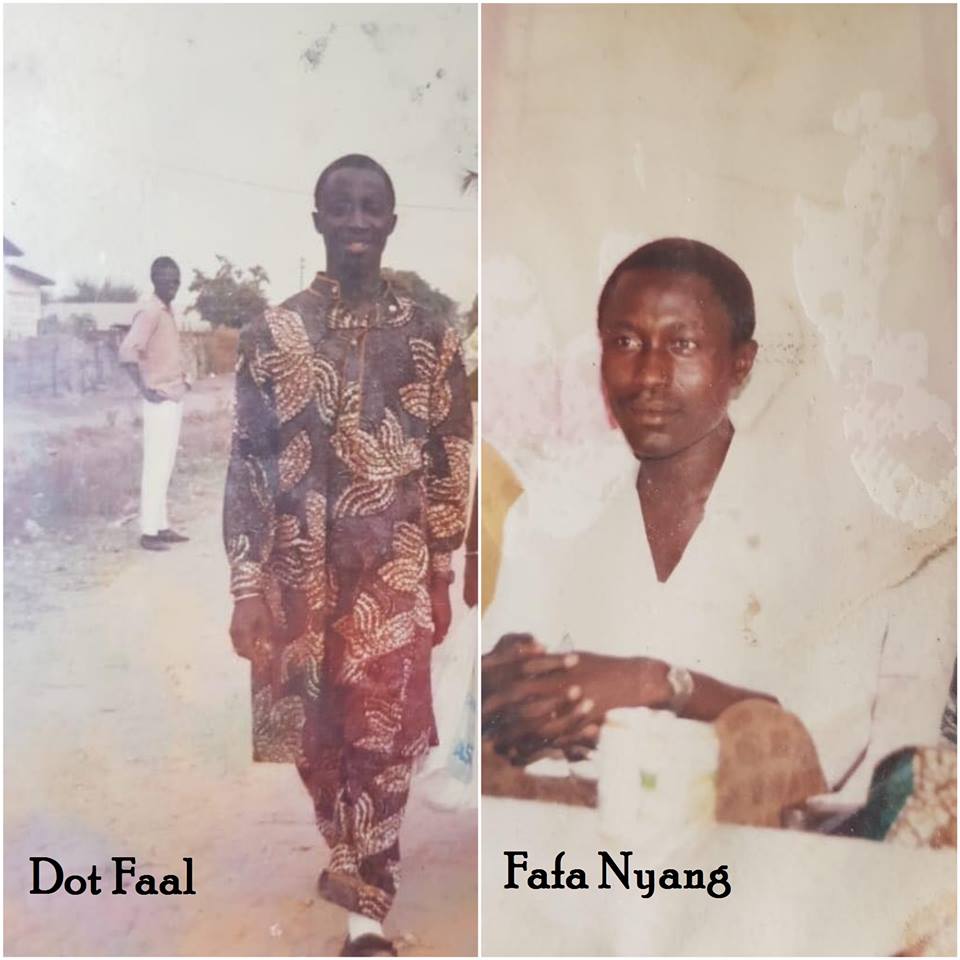
Unless the government and security agencies have concrete plans to ensure the security of every family living in the target communities, it is the affected people’s cries, their anguish and not those of the naysayers, not directly affected by the violence or those politicising and tribalising the issue, which the government should take into account, in addition to providing full reparation to all the victims and their relatives.
Any initiative that the government eventually applies regarding amnesty for perpetrators should ideally balance the demand for justice against the need for peace and reconciliation.
Furthermore, while the lack of amnesty for the insurgents can provide accountability, amnesty can provide stability. The attainment of both at this very point in time is almost impossible. Therefore, a choice has to be made on the resolution the government will adopt. Moreover, the option needs to be made soon.
So, as we continue to unravel this morbid, dark drama that the insurgents have visited upon us, we can be confident that the choice is not about which group of criminals deserve amnesty and which do not.
It is not about a perverse allegiance to ethnicity or religion. It is about what we are willing to sacrifice. Justice for the cause of peace or peace for the cause of justice? Over to the authorities. So what will it be: Peace or Justice.
By Alagi Yorro Jallow











Recent Comments